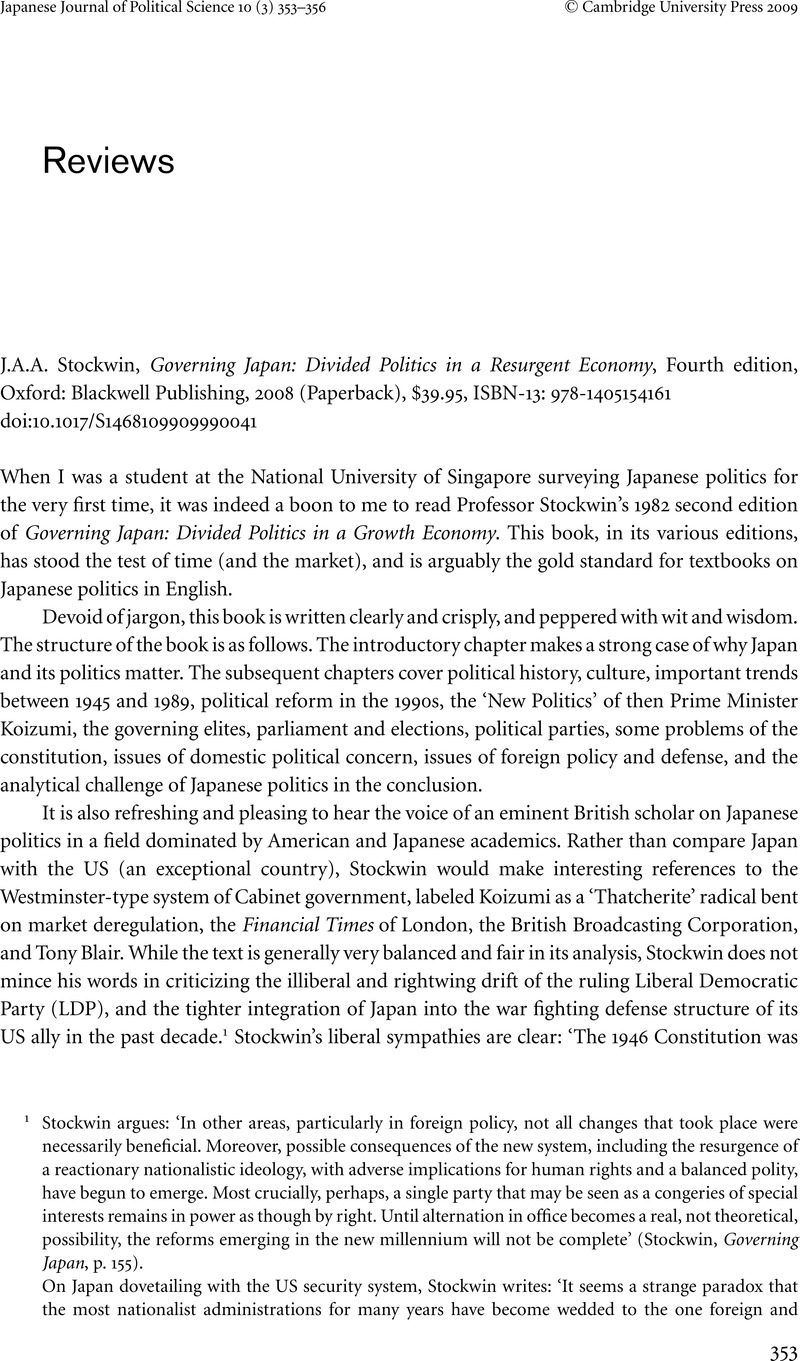No CrossRef data available.
Article contents
J.A.A. Stockwin, Governing Japan: Divided Politics in a Resurgent Economy, Fourth edition, Oxford: Blackwell Publishing, 2008 (Paperback), $39.95, ISBN-13: 978-1405154161
Review products
Published online by Cambridge University Press: 30 October 2009
Abstract

- Type
- Reviews
- Information
- Copyright
- Copyright © Cambridge University Press 2009
References
1 Stockwin argues: ‘In other areas, particularly in foreign policy, not all changes that took place were necessarily beneficial. Moreover, possible consequences of the new system, including the resurgence of a reactionary nationalistic ideology, with adverse implications for human rights and a balanced polity, have begun to emerge. Most crucially, perhaps, a single party that may be seen as a congeries of special interests remains in power as though by right. Until alternation in office becomes a real, not theoretical, possibility, the reforms emerging in the new millennium will not be complete’ (Stockwin, Governing Japan, p. 155).
On Japan dovetailing with the US security system, Stockwin writes: ‘It seems a strange paradox that the most nationalist administrations for many years have become wedded to the one foreign and security policy option that seems most likely to restrict the development of policies based on a Japanese perception of national interest’ (Ibid., p. 249).
3 Stockwin, J.A.A., The Japanese Socialist Party and Neutralism: A Study of a Political Party and its Foreign Policy (Melbourne: Melbourne University Press, 1968)Google Scholar.
4 Stockwin also has a tantalizing morsel of information concerning the collapse of the non-LDP ruling coalition in 1994. The JSP quit the coalition in anger and joined hands with its erstwhile enemy the LDP after Ozawa Ichiro formed a single grouping comprising all parties from the ruling coalition except the socialists. Stockwin notes: ‘Years later, Ozawa mused that he should have made the same offer to the Socialists.’ This implies that if Ozawa did not make this blunder, the LDP might well have been out of power for a longer time and one-party-dominance would have collapsed (see Stockwin, Governing Japan, footnote 28, p. 86).


